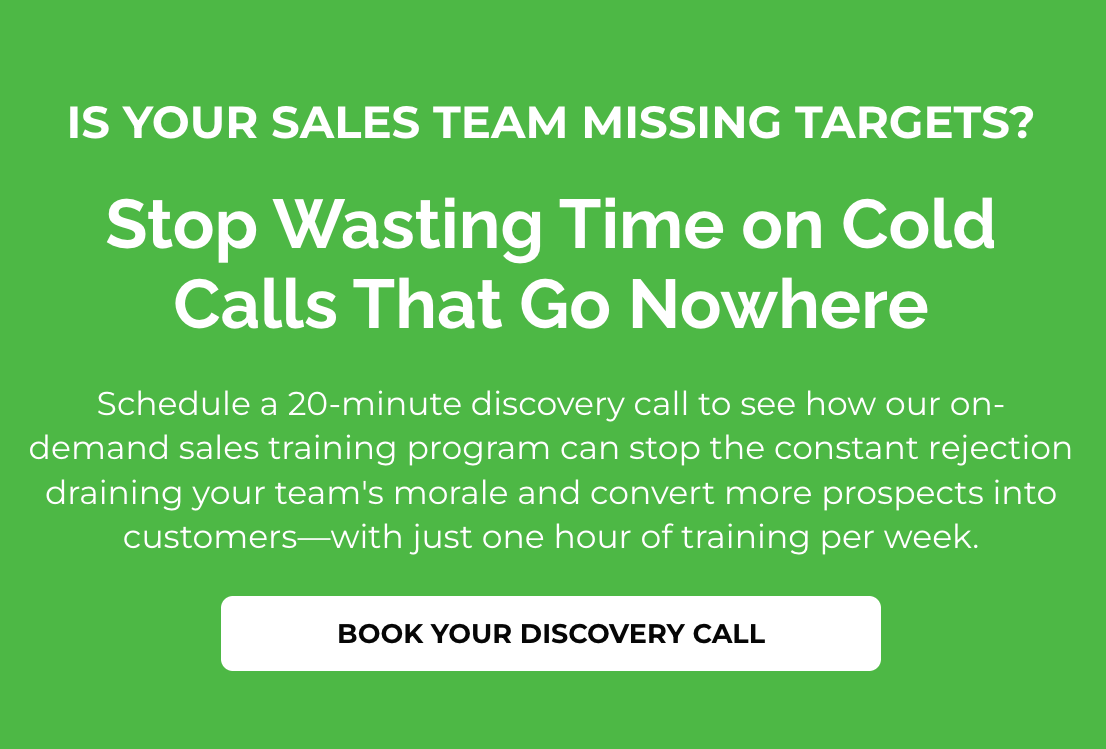Overcoming Sales Objections

Overcoming Sales Objections
“I keep running into sales objections when it’s time to close a deal, and I’m looking for creative ways to overcome them.”
Here are the top objections I’ve been getting:
“I’d like to think this over.”
“I need to speak to my partner about it.”
“This isn’t the right time for us to make changes.”
“We’re happy with our current provider.”
“Just send me the info, and I’ll get back to you.”
Each of these objections has a solution. But the real question is: do you want to learn how to handle them, or would you rather prevent them from coming up in the first place?
Personally, I prefer the prevention approach.
Let’s break down each objection.
1. “I’d like to think this over.”
This is a classic closing objection. When prospects say this, it usually means:
- They aren’t fully sold on the problem you’re solving.
- They’re not convinced your solution is the answer.
- They aren’t the true decision-maker.
- They’re concerned about the cost but hesitant to say so.
- They want to compare with competitors.
To prevent this objection, you need to follow a systematic approach to qualifying. Start by making sure they recognize the problem you’re solving—out loud. It’s not enough for you, as the sales rep, to see the problem; the prospect must recognize it and agree it’s worth addressing.
Action step: Work on your skills to get prospects to see and acknowledge the problem before moving forward. Most sales teams struggle here, and it’s the primary reason they hear objections like “I need to think about it.”
2. “I need to speak to my partner about it.”
This objection arises when the salesperson skips qualifying the prospect’s role in the decision-making process.
Too often, sales reps assume someone is a decision-maker based on their title or, worse, they ask, “Are you in charge of X?” without digging deeper. Then, at the close, they’re surprised when the prospect says they need to check with someone else.
Action step: Use techniques like the “SalesBuzz Fast Forward Sales Technique” to confirm decision-making roles accurately.
3. “This isn’t the right time for us to make changes.”
This one is simple to prevent—yet many teams miss it. If your team gets this objection at the close, they likely skipped asking about timing early in the call.
Once you’ve sparked interest and clarified the prospect’s role in decision-making, your next step should be to establish their timeline for solving the problem. If the problem isn’t recognized as urgent, timing won’t matter to the prospect.
Action step: When done right, each step of qualifying—interest, problem recognition, decision-making role, and timing—builds on the last, making it easier to move the conversation forward without objections.
4. “We’re happy with our current provider.”
This objection usually signals a failure in the initial stages of qualification, specifically around problem recognition.
If your prospect doesn’t see a problem, they won’t see a reason to switch. It’s critical that your team can navigate these early stages effectively, asking the right questions and responding to the prospect’s answers to drive problem recognition.
Action step: Train your team to handle this “Do Not Pass Go” step—problem recognition—like pros. No recognition, no sale. Period.
5. “Just send me the info, and I’ll get back to you.”
This objection indicates one or more missed steps—whether it’s problem recognition, identifying decision-making authority, or establishing a timeline for resolution.
When sales reps skip or rush through these steps, prospects lose commitment to the process, defaulting to a passive response like “send me info.”
Action step: Break down your sales process into clear, actionable steps. Teach your team to follow a structured approach that prevents objections from arising in the first place.
In Summary
Sales objections often arise not because of the prospect’s reluctance but because of missed steps in the sales process. By mastering a structured talk track that anticipates and addresses these issues, your team can significantly reduce objections and improve close rates.
Founder/CEO
SalesBuzz.com – We Don’t Just Train Sales Teams. We Make Them Better!

